what happened to fbi agent in richard jewell case
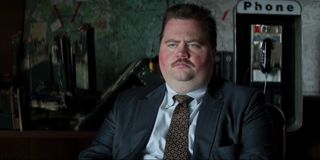
Richard Jewell is an Academy Awards nominated motion-picture show directed and produced by Clint Eastwood. Information technology'southward based on the existent-life events of the 1996 Summer Olympics and the Centennial Park bombing. The film explores Jewell'south crucifixion by the media and the FBI's manipulative quest to incriminate him. When y'all accomplish the Richard Jewell ending, you feel a deeper agreement of him as a human and his friendship with lawyer Watson Bryant.
Richard Jewell is a case report on how the media can make or break a person, and how ordinary people can be thrust into boggling situations. Richard Jewell is an interesting exploration of this fascinating case of a man wrongfully accused.
As nosotros'll be discussing the plot of Richard Jewell, expect spoilers.
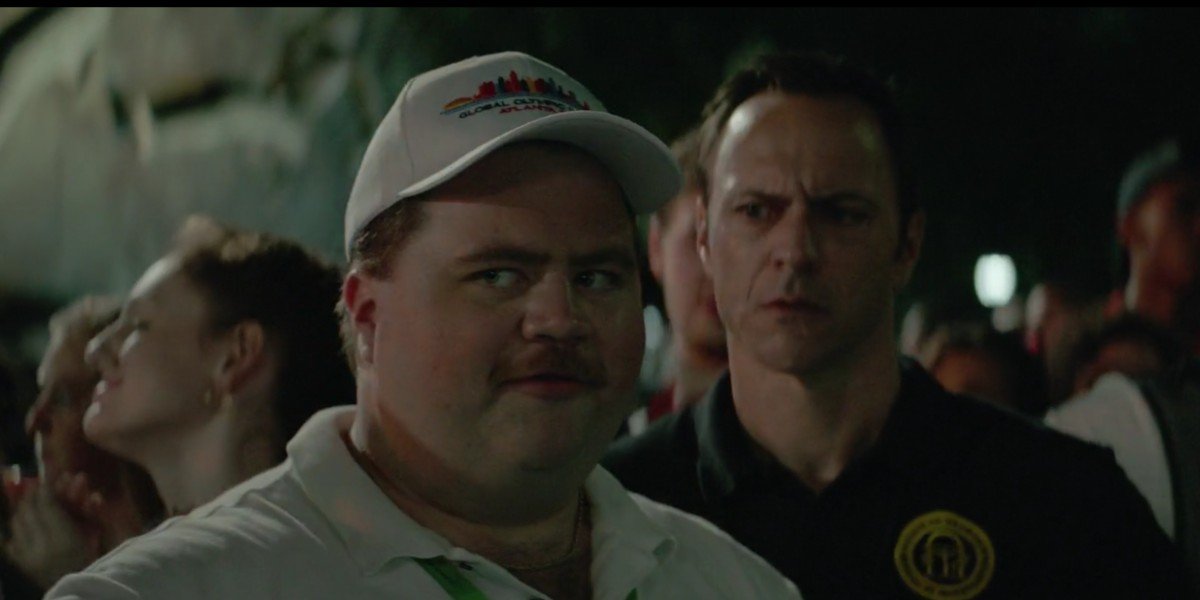
What Crime Was Richard Jewell Accused Of?
Richard Jewell was never officially charged with any crimes, but he spent 88 days being under investigation as the person responsible for the 1996 bombs in Centennial Park. The FBI's theory was that Jewell left these bombs so that he could be the one to find them and gain hero condition. According to them, he fit the profile of a lone bomber. On July 27, 1996, Jewell was working security at concerts going on in Centennial Park. He noticed a suspicious green haversack, then alerted cops and authorized regime.
Jewell and other men were able to clear the perimeter plenty to minimize the touch. 111 people were still injured, and two people died: Alice Hawthorne and Melih Uzunyol, a Turkish cameraman who had a eye attack while trying to comprehend the event. On July thirty, 1996, The Atlanta Journal-Constitution reported the FBI investigation of Jewell equally the potential bomber.
From at that place, Jewell spent nearly three months being questioned, probed, discussed, and hounded by the media--who labeled him guilty without any real prove.
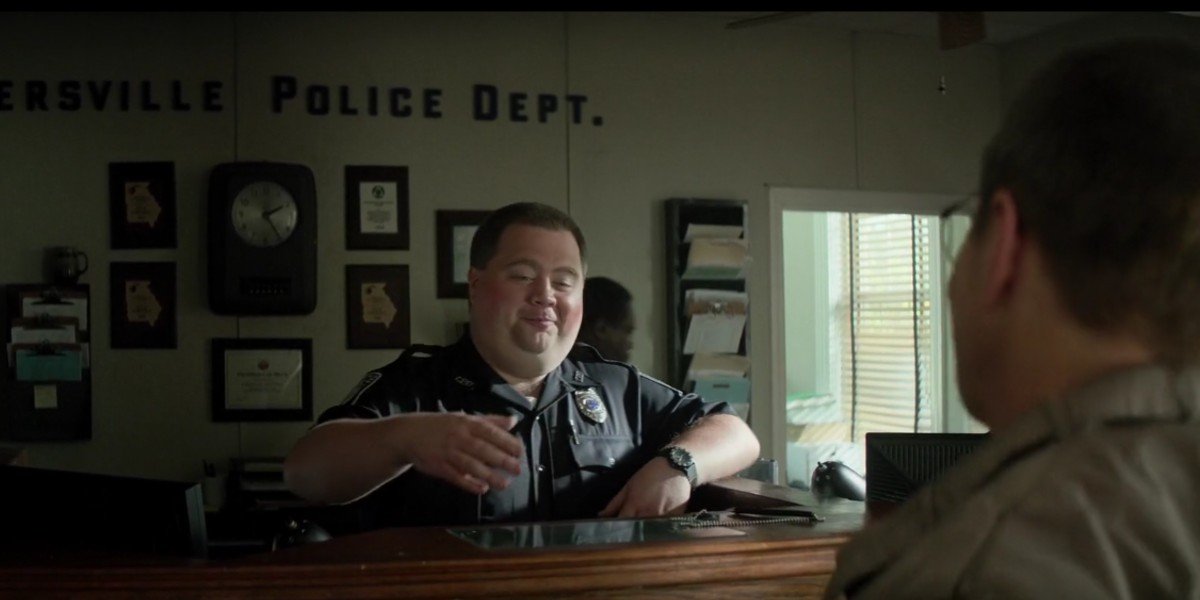
How Did The Pic End?
Richard Jewell ended with a quiet showdown between Jewell (played by Paul Walter Hauser) and Watson Bryant (Sam Rockwell), and the FBI agents in charge of his case, led by Tom Shaw (Jon Hamm). It starts with them in a briefing room conducting an interrogation of Jewell. Eventually, Jewell becomes fed upward with all the questioning and says they don't have whatever evidence to charge him. Prior to this coming together, Jewell undergoes a polygraph test that proves he'southward telling the truth.
The polygraph seems to exist the terminal nail in the FBI's attempt at finding prove against Jewell. After the interrogation, onetime afterward, Shaw and other FBI members hand Jewell and Bryant a letter that states they will no longer be investigating him as a doubtable. Jewell becomes emotional well-nigh regaining his freedom.
The moving-picture show flashes vi years afterward and Bryant informs Richard Jewell that the FBI has finally got the real bomber: Eric Rudolph. The screen fades to black and the audience is informed that Jewell died at 44, Bryant and his assistant Nayda (played by Nina Arianda) were married and have two sons that Richard's female parent, Bobi (played past Kathy Bates) watches every Saturday.
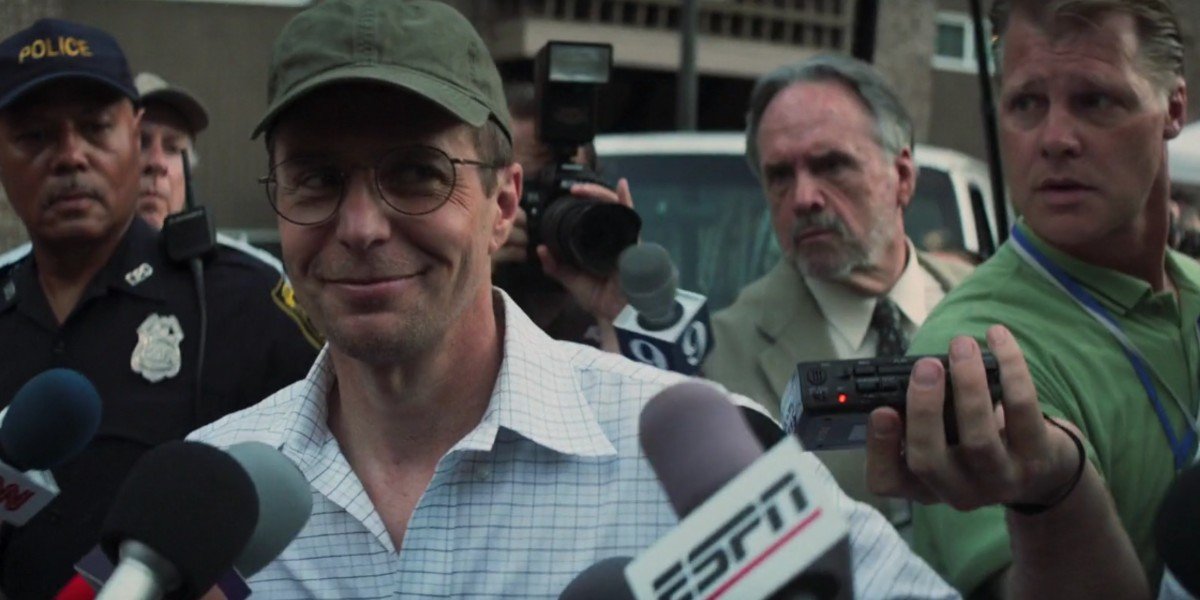
How Does The Real Story Ending Compare To The Movie Ending?
After Richard Jewell was no longer a doubtable, his boxing connected. He filed several lawsuits confronting media companies and others, similar The Post, The Atlanta Journal-Constitution, NBC, and his former employer Piedmont College. These cases typically ended up existence settled out of court and him being rewarded an undisclosed corporeality of money. NBC even featured him on an SNL skit to joke well-nigh the incident. According to The Washington Post, Jewell stated that the lawsuits weren't almost the money --because virtually of it went to lawyer fees, taxes, and a new home for his mother-- but to ensure that the truth was told.
The picture show doesn't address these lawsuits, simply they play an important part in Jewell'due south connected quest to accept his proper noun cleared and repaired.
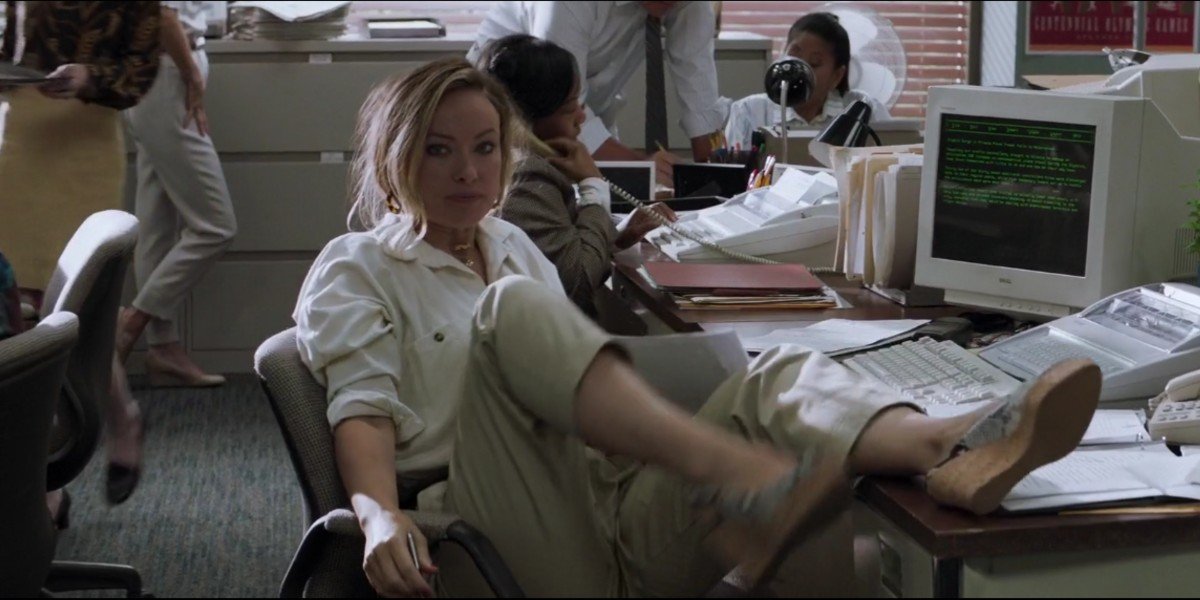
Did The Film Do Richard Jewell's Story Justice?
Clint Eastwood's flick is based on the Vanity Fair profile piece (linked earlier) American Nightmare: The Carol of Richard Jewell and the volume The Suspect: An Olympic Bombing, the FBI, the Media, and Richard Jewell, the Man Defenseless in the Middle. Based on the Vanity Fair article, the film follows the facts told in it pretty closely. Even so, in that location are some things that don't quite come beyond in the film that are stated in the commodity. In the movie, Richard is kind of portrayed like a bit of an outcast, mama's boy simpleton, simply in real life, the article said he had an agile social life, a complicated but loving relationship with his female parent, and he was quite observant and smart.
The film also takes liberties with how data and events unfolded. For example, Bryant finds out well-nigh the FBI investigating Jewell from seeing the paper on the stands, not from Nayda showing it to him (as shown in the picture). Bryant also had help from other lawyers to clear Jewell'due south proper name.
The pocket-size changes here and at that place are understandable because it'southward a film that needs to entertain as much as information technology's trying to inform. However, there are two major things that the movie portrays in questionable ways. The media hounding of Jewell was shown every bit being pretty bad, merely it was worse in real life. According to the Vanity Off-white commodity, Jewell'southward phone number was leaked online and he received thousands of calls a day from people threatening him. The reporters outside his home would fifty-fifty yell and harass Bobi and Richard to endeavour to get a reaction to catch on film. Fifty-fifty highly respected journalists like Katie Couric tracked Jewell down when he canceled an interview with her. The trial by the media seemed roughshod and not shown nigh as intense in the motion picture.
The other questionable element of Richard Jewell is the portrayal of Kathy Scruggs, played in the picture by Olivia Wilde. Scruggs was the Atlanta Constitution-Journal reporter who first wrote well-nigh Jewell beingness on the FBI's suspect listing. In the flick, Kathy is portrayed as a ruthless reporter who is willing to use any means necessary to get a story, even sleeping with an FBI amanuensis, and non showing empathy for the victims after the bombing. The Vanity Fair commodity just briefly discusses Scruggs, and calls her an FBI "groupie." It as well mentions her being kind of a tough journalist, but never demonizes her in the way the film does.
An commodity published on Columbia college's website entitled Richard Jewell Case Study, discussed Scruggs more and showed her in a more than professional manner. Information technology states that she was given a tip about the FBI and Richard Jewell and respected the request to not publish it without finding more sources, so Scruggs and co-writer Ron Martz found more sources. According to the Columbia commodity, they also tried to exist careful with the wording.
Every bit the story went through the editing process, Scruggs, Martz and Managing Editor John Walter talked most what discussion to use, Scruggs would say later. Should they call Jewell a "doubtable," "focus" or "target?" While others were under suspicion, Martz at least thought Jewell was the lead suspect. Walter decided the story should use the word "focus," Scruggs would recall.
Scruggs died in 2001, and so she can't dispute the picture show's portrayal of her, but she might not have been as ruthless as shown in Richard Jewell.
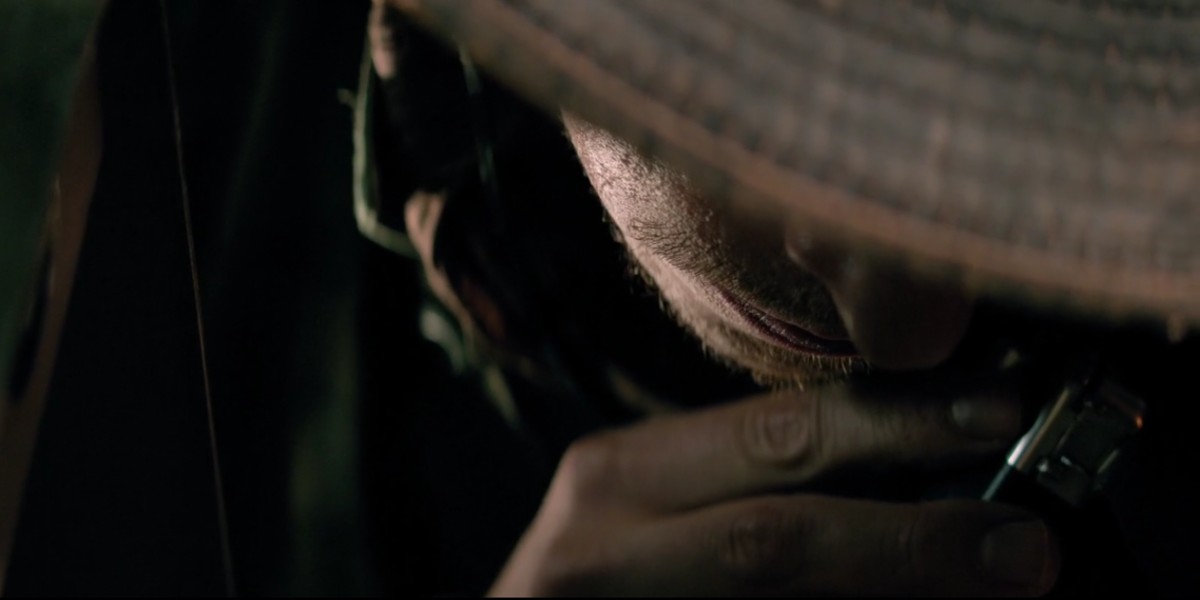
What Happened To The Existent Bomber?
Eric Rudolph did iii other bombs, iv in full, before he became a suspect. In addition to the park, he bombed a gay nightclub and abortion clinics. His motives were because he was confronting ballgame and didn't desire homosexuality normalized. He expressed this all in a statement fabricated upon confessing to the crimes. This was his reason for the Olympics bombing:
The purpose of the attack on July 27th was to confound, anger and embarrass the Washington regime in the eyes of the world for its abominable sanctioning of abortion on demand.
The constabulary defenseless on to Rudolph when he did a bombing in Birmingham. Someone saw him running from the scene and took down his license. It was in 1998, and he then spent over five years on the run living and surviving in the wilderness. He was caught in 2003 when a police officeholder saw him behind a dumpster searching for food. He appeared on the 10 Nearly Wanted Fugitives list all five years, and there was a million-dollar advantage offered for whatsoever info. He was given life in prison house without parole.
Richard Jewell is one of the great movies currently bachelor to stream on HBO Max. Stream it here .

Spent about of my life in diverse parts of Illinois, including attending higher in Evanston. I have been a life long lover of pop civilization, particularly television, turned that passion into writing virtually all things amusement related. When I'chiliad not writing almost popular culture, I can exist found channeling Gordon Ramsay by boot people out the kitchen.
Source: https://www.cinemablend.com/news/2552975/richard-jewell-ending-explained-what-happened-and-what-happened-after
0 Response to "what happened to fbi agent in richard jewell case"
Post a Comment